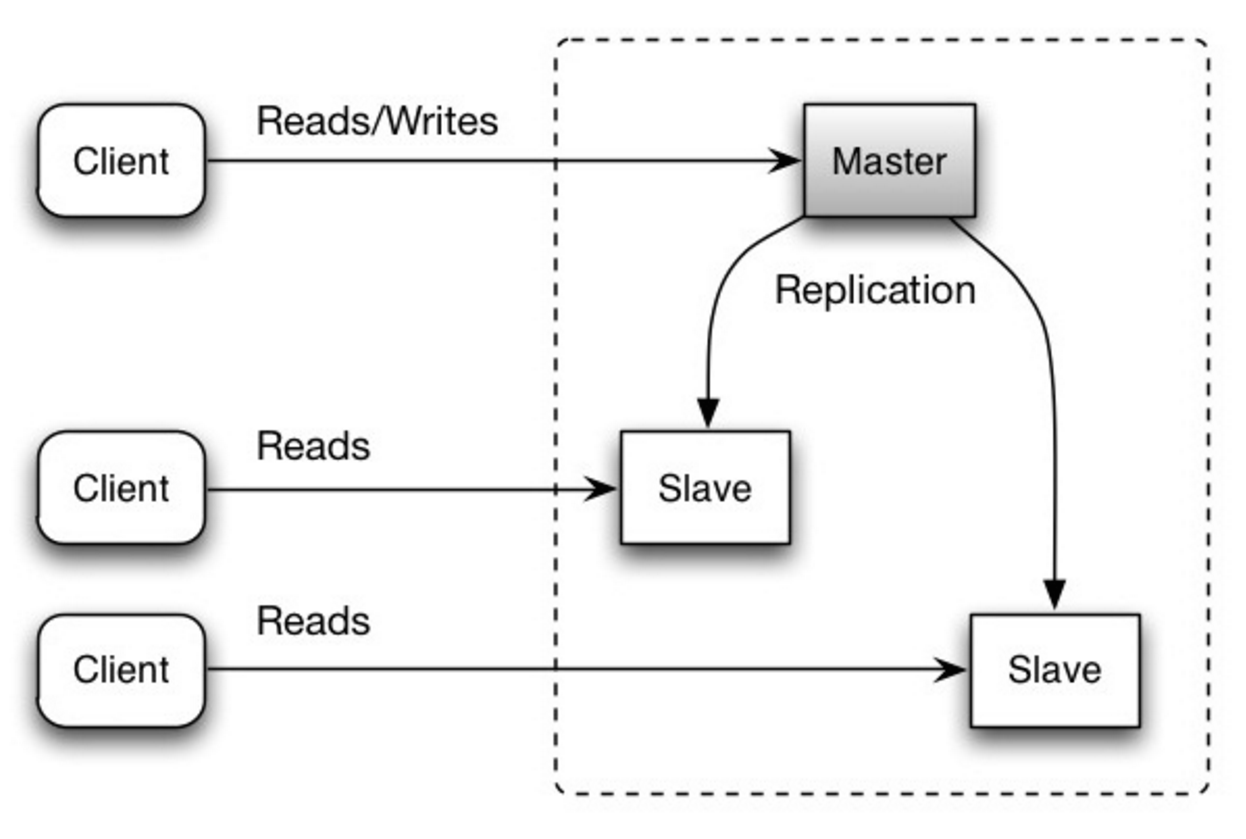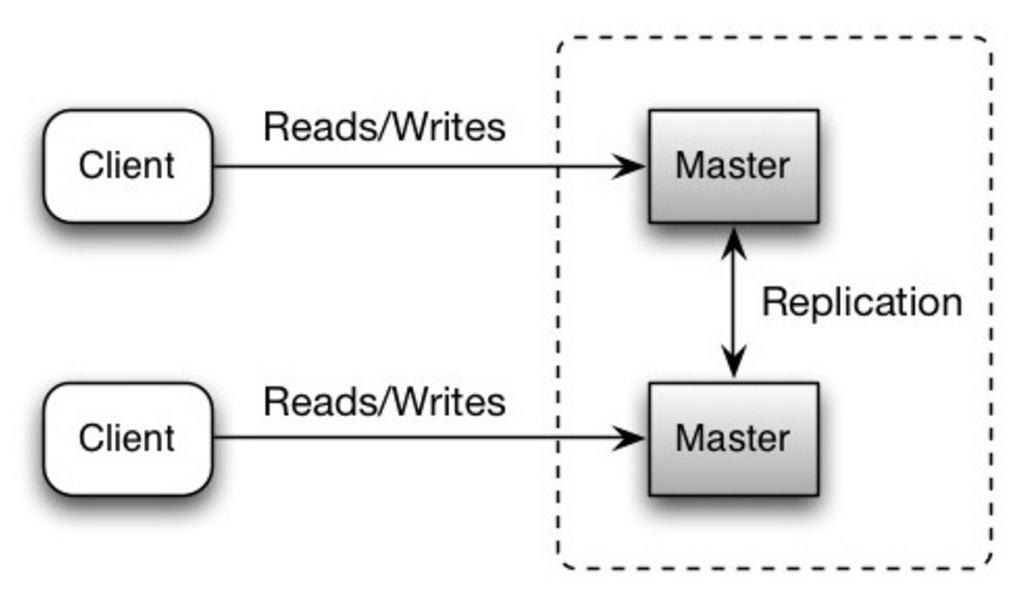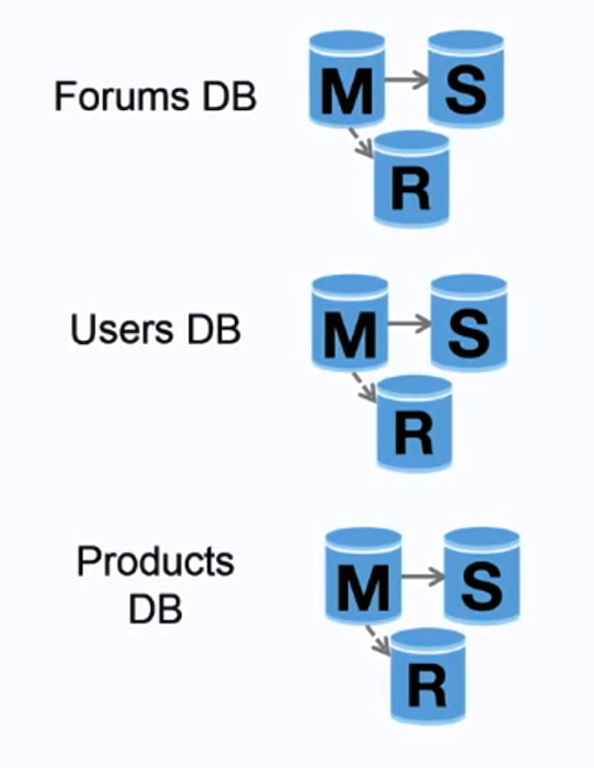Scaling
Master-slave replication
The master serves reads and writes, replicating writes to one or more slaves, which serve only reads. Slaves can also replicate to additional slaves in a tree-like fashion.
If the master goes offline, the system can continue to operate in read-only mode until a slave is promoted to a master or a new master is provisioned.

Master-master replication
Both masters serve reads and writes and coordinate with each other on writes. If either master goes down, the system can continue to operate with both reads and writes.

Disadvantages of replication
There is a potential for loss of data if the master fails before any newly written data can be replicated to other nodes. Writes are replayed to the read replicas. If there are a lot of writes, the read replicas can get bogged down with replaying writes and can't do as many reads. The more read slaves, the more you have to replicate, which leads to greater replication lag. On some systems, writing to the master can spawn multiple threads to write in parallel, whereas read replicas only support writing sequentially with a single thread. Replication adds more hardware and additional complexity.
Federation

Federation (or functional partitioning) splits up databases by function. For example, instead of a single, monolithic database, you could have three databases: forums, users, and products, resulting in less read and write traffic to each database and therefore less replication lag. Smaller databases result in more data that can fit in memory, which in turn results in more cache hits due to improved cache locality. With no single central master serializing writes you can write in parallel, increasing throughput.
Disadvantage(s): federation Federation is not effective if your schema requires huge functions or tables. You'll need to update your application logic to determine which database to read and write. Joining data from two databases is more complex with a server link. Federation adds more hardware and additional complexity.